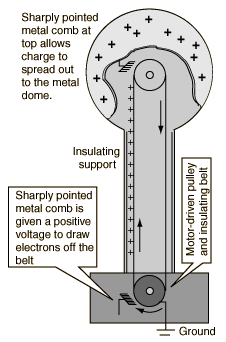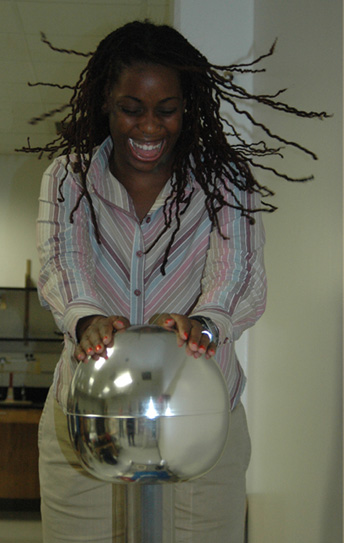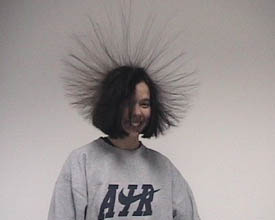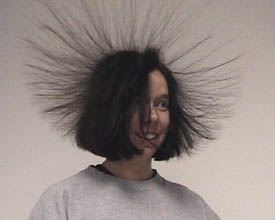 |
Van de Graaff GeneratorVoltages of hundreds of thousands of volts can be generated with a demonstration model Van de Graaff generator. Though startling, discharges from the Van de Graaff do not represent a serious shock hazard since the currents attainable are so small. A pulley drives an insulating belt by a sharply pointed metal comb which has been given a positive charge by a power supply. Electrons are removed from the belt, leaving it positively charged. A similar comb at the top allows the net positive charge* to spread to the dome.
|

 |
Experimenters Erin Klein Jacobs above and Nehlia Grey at left demonstrate the reality that like charges repel. The strands of their hair all have the same net charge and therefore repel each other strongly. |
Voltage concepts
| HyperPhysics***** Electricity and Magnetism | R Nave |







